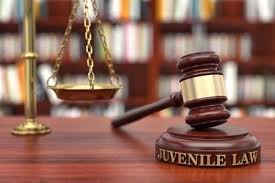Did you know that according to the United States Department of Justice’s annual data, the country experiences over one million burglaries each year on average, with more than half of these incidents involving home invasions?
Breaking and entering is a serious offense that can have significant legal consequences. But how long will you be in jail for breaking and entering? The answer varies depending on the jurisdiction and the specifics of the crime. Whether you’re a homeowner, tenant, or someone accused of this crime, you must understand your legal rights and the implications of such actions.
Stay informed about breaking and entering laws to protect your property and rights effectively.
Types of Breaking and Entering Offenses
Breaking and entering involves illegal activities where someone enters a property without permission in order to commit a crime. These actions are serious and can lead to significant legal penalties.
One common type of breaking and entering offense is burglary, which involves unlawfully entering a building or dwelling with the intent to commit theft or another felony.
Another type is trespassing, which involves entering someone else’s property without permission. Trespassing can be classified as a misdemeanor, depending on the circumstances and jurisdiction.
Even if you don’t intend to commit a crime once inside, simply entering a property without authorization can still be considered breaking and entering. This unauthorized entry can lead to charges resulting in a criminal record.
Some states have specific laws regarding breaking and entering motor vehicles, which can lead to separate charges. Understanding the different types of breaking and entering offenses is necessary to know your legal rights and responsibilities.
Understanding Property Rights
Property rights are fundamental legal principles that govern your ownership and control over land, buildings, and other possessions. These rights allow you to use, sell, lease, or transfer your property as you see fit.
As a property owner, you may exclude others from entering your land or premises without permission. Individuals can’t trespass on your property without facing potential legal consequences.
Property rights include the right to seek legal recourse if someone interferes with your ownership or possession of the property. You must understand the boundaries of your property rights to protect your interests and assets.
Legal Protections for Property Owners
As a property owner, you have certain rights that can help protect your home or business from unauthorized entry or trespassing.
Property owners have the right to take reasonable actions to defend their property from intruders. This can include using necessary force to remove trespassers or protect against harm to yourself or others on the property. The level of force used must be proportionate to the threat faced.
In the unfortunate event of a break-in or trespassing incident, property owners also have the right to contact law enforcement to report the incident and seek assistance in addressing the situation.
Tenant Rights in Break-Ins
As a tenant, you have rights in the event of a break-in. In most jurisdictions, landlords are responsible for maintaining the security of rental properties.
Your landlord may be liable if a break-in occurs due to a lack of proper security measures, such as broken locks or faulty alarms. As a tenant, you have the right to request that your landlord improve security on the property to prevent future break-ins.
If a break-in happens, you should notify your landlord immediately. Document any damages or stolen items as evidence for insurance claims or legal purposes. Your landlord should also be informed of any necessary repairs or security upgrades to make the property secure again.
As a tenant, you have the right to feel safe and secure in your rental property, and your landlord is obligated to uphold these rights by maintaining a secure living environment for you.
Steps to Take After a Break-In
After a break-in, your priority should be ensuring your safety and contacting the authorities.
Leave the premises immediately if you feel unsafe and find a safe location nearby. Once you feel safe, call 911 or your local emergency number to report the break-in. Provide the dispatcher with as much information as possible, such as your location, what you observed during the break-in, and any details about the intruder if known.
While waiting for the authorities to arrive, avoid touching anything in the area the intruder may have come into contact with to preserve potential evidence. Refrain from entering the property until law enforcement has cleared it and permitted you to do so. Once the police have completed their investigation, document any damaged or missing items for insurance.
Consider a support network or counselor to help you process the emotional impact of the break-in and explore ways to improve your home’s security to prevent future incidents.
Conclusion
Knowing your legal rights in breaking and entering is important for protecting yourself and your property. Remember to take proactive steps to secure your property and seek legal assistance in case a crime is committed on your property.

